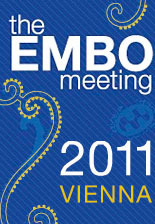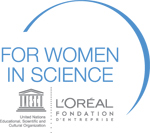| Women in Science |
 |
 |
|
Monday 6 September, 18:00 to 19:30 - Room F Level -1
EMBO/FEBS Women in Science Session
The Intelligent Brain: Does Sex Matter? The "gender-similarity hypothesis" postulates that measurable differences in cognitive abilities cannot be detected in more career relevant traits such as math and language abilities (Hyde). On the other hand, new brain imaging technologies allow us to observe that male and female brains are different from one another. Men and women of equal intelligence seem to use different areas of their brains to solve a problem. Moreover, the data suggest that the general brain architecture in men and women differs. Do the differences between male and female brains explain the observed behavioural differences?
Professor Haier works with neuroimaging technologies to study individual differences in mental abilities. He will discuss his results on the neural basis of human intelligence and cognition. His talk will be followed by an open discussion. |
|||||


